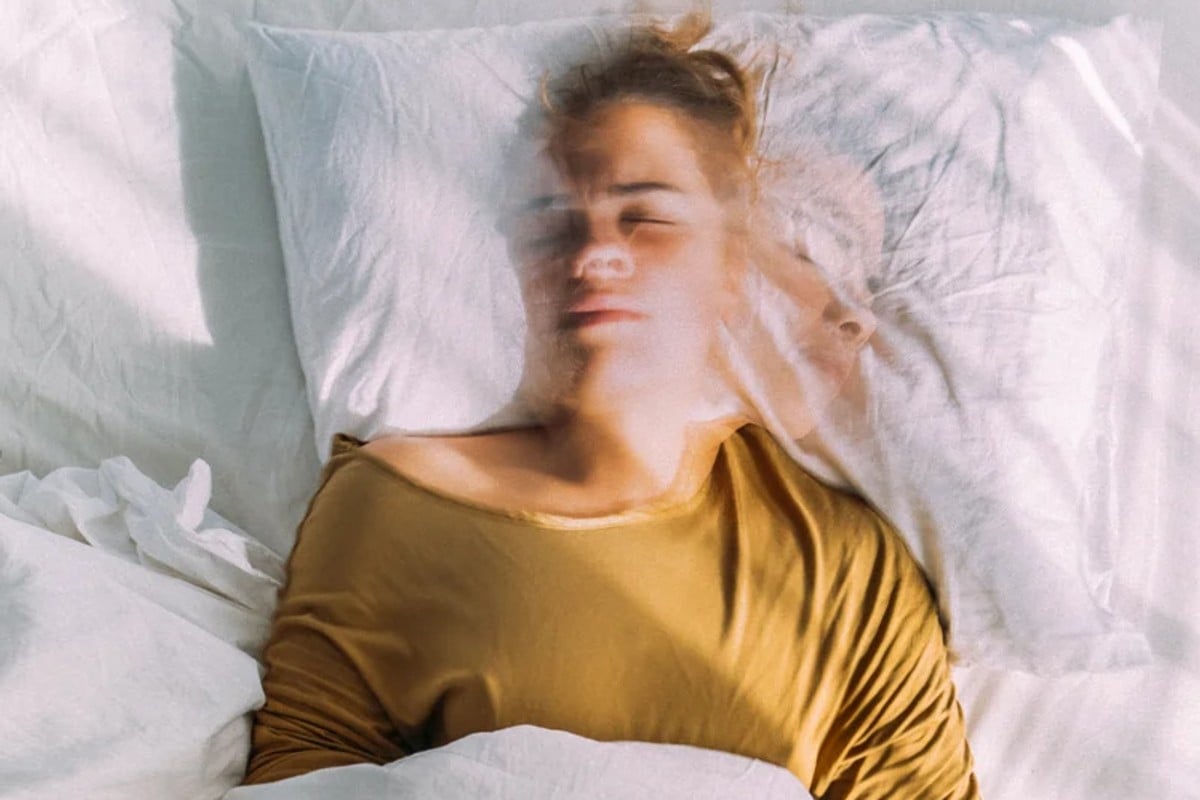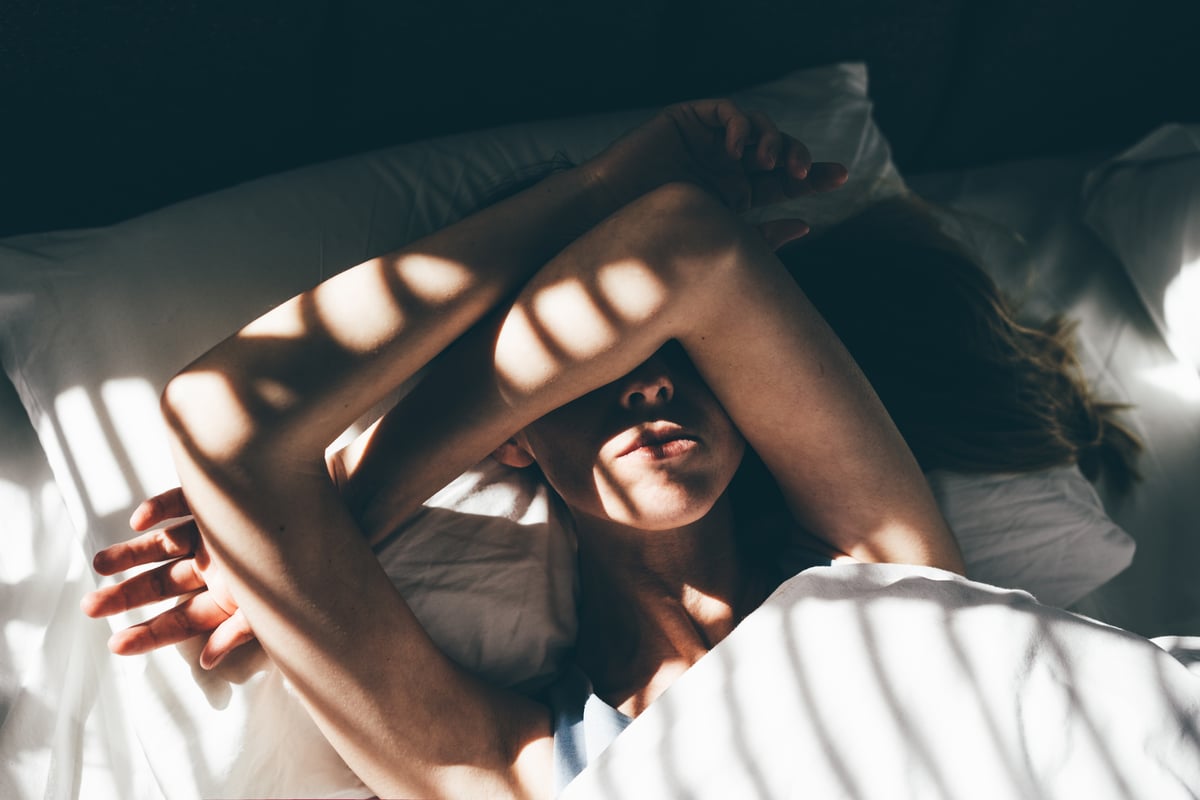
If you want to support independent women's media, become a Mamamia subscriber. Get an all-access pass to everything we make, including exclusive podcasts, articles, videos and our exercise app, MOVE.
Lately, my sleep has felt like it's been dragged through a hedge backwards.
I'm crashing later, waking earlier, and somewhere around 3am, my brain/bladder decides it's the perfect time to wake up for a wee.
Hours are then spent tossing and turning as a faint light starts to glimmer behind (what I thought) were quality black-out curtains. Then the birds start. A few weeks ago, the kookaburras would go off around 6am, but I've begun to notice the chorus call of those cheeky kingfishers is starting earlier and earlier.
Listen: We answer all your questions about sleep. Post continues below.
Sick of the restless pondering, I whined to a few friends about my sleep going completely haywire. Their response? "OMG, same."
I remembered vaguely, in a bleary-eyed fugue state, that this happened the same time last year as well.
So, I decided to do some digging.
We offer to hear about winter blues, but it turns out spring can quietly wreck your sleep in its own sneaky way.
Let's break down the science of why you (and everyone you know) might be sleeping like absolute garbage right now.
And more importantly, how you can fix it.
Dr Moira Junge, CEO of The Sleep Health Foundation, explained that as the days get longer, our circadian rhythms — the internal clocks that govern our sleep-wake cycles — can get totally thrown off.





























































































